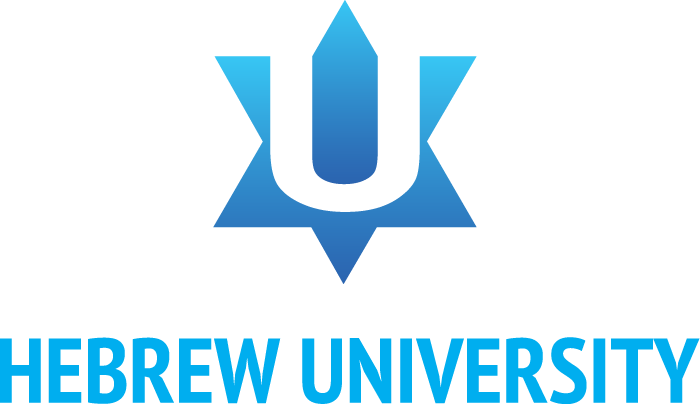
Our fully online Bachelor of Health Services Administration qualifies graduates for entry-level management positions in a variety of health-related organizations or further education at the graduate level. Healthcare needs talented individuals to fill a growing need for professionals within the system that of the Health Services Administrator.
The program emphasizes systems engineering and financial management of health organizations, health services research, economics, policies and regulations, legal aspects of health systems, and program planning and evaluation. Its curriculum prepares graduates to effectively manage healthcare organizations within an ever-changing, highly technological, multicultural world. BHSA faculty members are leaders in their field, with both deep academic knowledge in all areas of healthcare and real-world practical experience.
A total of 120 credit hours are required for the Bachelor of Health Services Administration. Students must complete 60 credit hours of lower-division University Core Curriculum (including pre-requisite courses) and 60 credit hours of upper-division coursework that consists of foundation courses, core courses, integrative courses, andelectives.
Career & Outcomes

A bachelor’s in health services administration is a pathway to career advancement and provides an opportunity to make a significant contribution to healthcare organizations and the increasingly multicultural communities in which they serve and work. Job opportunities for graduates with a Bachelor of Health Services Administration (BHSA) degree include management positions in hospitals, long-term care facilities, health insurance, rehabilitation centers, private medical practices, non-profit healthcare, community agencies, and acute care healthcare systems. The demand for health services and medical managers is expected to grow by 23% between 2012 and 2022. Fueling this growth is the need for managers who can monitor rising healthcare costs, retain employees, and recruit new ones, transfer and maintain digital patient records and implement new technologies. Hospitals, which employed 39% of the 315,000 medical and health services managers in 2012, were the top employer, but there are new opportunities in nursing care facilities and offices of healthcare practitioners and medical group practices. (Occupational Handbook, Bureau of Labor Statistics)
Program Outline:
General Education
3 Credits
Course Description:
This course is an introduction to college-level writing, offering freshmen students training in the techniques and skills required to write unified, coherent paragraphs and essays and in the use of the library and electronic formats as a source of reference. Students receive instruction on the principles, practice, and skills of argumentation and critical reading and thinking. This course serves to meet the US Higher Educational Institution Gordon Rule writing requirements.
Learning Outcome:
Upon completion of this course, students will be able to:
- Expand knowledge of sentence construction and overall essay organization.
- Write a documented research paper using the library and electronic formats.
- Proofread and revise your writing.
- Locate information in the library using various formats and write correct bibliographical references.
- Identify and correct Run-Ons and Fragments within a passage.
- Understand the writing process and follow the four steps in writing.
- Identify subjects and verbs.
- Make subjects and verbs agree.
- Develop fluency in writing by increasing the frequency of writing.
- Identify and correct spelling errors.
- Correct use of capital letters and punctuation marks in sentences and paragraphs.
3 Credits
Course Description:
Students will apply and refine their writing skills in various types of writing such as persuasive writing, argumentative writing, comparison, and contrast writing, research papers, expository writing, writing about literature, and creative writing. This course serves to meet the US Higher Educational Institution Gordon Rule writing requirements. Prerequisite: ENG – 1101
Learning Outcome:
Upon completion of this course, students will be able to:
- Produce essays that demonstrate their skills in the major rhetorical patterns such as narration, description, process, definition, argumentation, persuasion, and comparison and contrast.
- Demonstrate knowledge of the fundamentals of research and proper documentation.
- Be able to reflect on what contributed to their writing process and evaluate their work.
3 Credits
Course Description:
This course covers developments in social and cultural changes through modern times. Topics covered will examine the sociological perspectives, sociological research, sexuality, cultural debates, the process of socialization, groups and organizations, crime and deviance, stratification, inequality and discrimination that affects ageism and gender, race and ethnicity, issues involving the economy, different forms of government, marriage, religion, health, and environment safety, urbanization, and social movements.
3 Credits
Course Description:
The following topics are included in this course; functions; domain and range of a function; graphs of functions and relations; algebra of functions; composite and inverse functions; linear, quadratic, and rational functions; absolute value and radical functions and equations; exponential and logarithmic properties, functions and equations; systems of equations and inequalities; mathematical modeling; and applications involving the able listed topics.
3 Credits
Course Description:
This course offers a chronological survey of guiding ideas and trends within western culture, as reflected in the philosophy, literature, and fine arts of the ancient, medieval, and modern times. The instructor will select a succession of periods that can be covered meaningfully within the term. The student will acquire knowledge of the cultural achievements falling within selected periods in the development of western civilization, along with an understanding of how these achievements contribute to making the west’s present cultural inheritance.
3 Credits
Course Description:
This course provides students with an in-depth knowledge of the principles and applications of biology. Topics include biochemistry, genetics, the structure and function of molecules and cells, metabolism, and energy transformation. Students apply these concepts using practical examples, facilitated discussions, and experiments conducted through hands-on labs.
1 Credits
Course Description:
This course is the lab component of BSC_1010 and is a corequisite for that course. General Biology Lab introduces students to basic techniques and safety practices in the laboratory. BSC_1010L consists of specific experiments and demonstrations and will stress the importance of the scientific method by allowing students to design and implement an independent research project.
3 Credits
Course Description:
An introduction to the study of human biology, including evolution, ecology, physiological regulations, nutrition, genetics, immune response, reproduction, development, aging, and cancer.
Learning Outcome:
- Describe the structure and function of the human body as a whole.
- Describe the structure and function of the integumentary, skeletal, muscular, circulatory, and respiratory systems.
- Identify the anatomical and physiological bases of the most common diseases and disorders, and diagnostic, imaging, and therapeutic procedures related to these systems.
- Be able to use the microscope and the laboratory equipment in the identification of microscopic structures and functions of these systems.
4 Credits
Course Description:
This course is designed to present basic computer terminology and functions to those with no prior computer experience. This subject covers the basic data processing cycle, history of data processing, hardware components and functions, number systems, and files. Also, the students receive an introduction to the use of the Internet.
4 Credits
Course Description:
First methods course introducing probability and statistical inference, including estimation, hypothesis testing, binomial and normal distributions, sample size.
Core Courses
3 Credits
Course Description:
This course is designed to provide the foundation of business practice. An array of scenario will be discussed in the classes to allow the student to expose to manage a business regardless of the service is generated.
3 Credits
Course Description:
This introductory course allows the student to comprehend the rules of accounting and its applications in the business environment.
1 Credits
Course Description:
This introductory course allows the student to implement the rules of accounting and its applications in relation of end product reports.
3 Credits
Course Description:
A survey of the economics, social, and political aspects of the health care system in the United States.
3 Credits
Course Description:
A study of the language of medicine and allied health specialties, including work construction, definitions, and application of terms.
3 Credits
Course Description:
This course is designed to provide tools and resources on how to manage medical office in a productive and accountable matter.
3 Credits
Course Description:
Course will introduce the contractual, financial, and practice pattern components of managed care.
3 Credits
Course Description:
The purpose of this class is to thoroughly familiarize the student with the various uses of accounting information for planning and control.
3 Credits
Course Description:
A survey of the economics, social, and political aspects of the health care system in the United States.
3 Credits
Course Description:
Nature of accounting, financial statements, the accounting cycle, assets, current liabilities, long-term debt, and owner’s equity; accounting for proprietorships and corporations.
3 Credits
Course Description:
The origin, evolution and application of health information technology in today’s healthcare industry.
3 Credits
Course Description:
Historical, sociocultural and economic factors in community health; current community health problems; interphase of governmental, voluntary and private agencies. Also, the course will include a study of the distribution and determination of diseases and injuries in human population.
3 Credits
Course Description:
Organization and functioning of long-term care administration. Covers long-term care providers, interaction in long-term care continuum, managing long-term care and future issues.
3 Credits
Course Description:
This course is designed to introduce marketing strategies within the regulatory market to promote the healthcare organization.
3 Credits
Course Description:
This course prepares the students to conduct business using adequate verbiage to relate inside clients as well as clients.
Upper-Level Courses
3 Credits
Course Description:
This course explores the security and the privacy of the Database Management System.
3 Credits
Course Description:
This course evaluates the ethics structure established in the healthcare organization on how to care for the elderly and the implications of any weakness in the system.
3 Credits
Course Description:
This course is designed to provide strategies to support productivity by generating a positive, accountable environment of the team members.
3 Credits
Course Description:
This course covers the step to establish your own business under the regulatory system of the State Agency. It offers tools in accounting, finance, marketing and management in the operation of a success business enterprise.
3 Credits
Course Description:
The course is designed to expose to negotiation techniques and conflict resolution to avoid further legal implication on default cases.
3 Credits
Course Description:
This course covers the legislature decision in relation to regulatory implication of implement legal rules.
3 Credits
Course Description:
This course offers training techniques and tools to operate a business enterprise in a culture diversity environment.
3 Credits
Course Description:
This course provides application of risk management to affect patients, providers, and policy makers behaviors in the delivery of health services.
3 Credits
Course Description:
This course provides the structure on how to run an effective healthcare organization under the organization behavior guidelines.
3 Credits
Course Description:
This course introduces guidelines and tools to comply with labor and healthcare regulatory staff.
3 Credits
Course Description:
Overview of the legal and ethical issues faced by health care consumers, practitioners, administrators and health care facilities.
3 Credits
Course Description:
This course covers the healthcare organization protocol on long term care. Also, it includes principles and mechanics of quality improvement; utilization review; case management and risk management.
3 Credits
Course Description:
Capstone course applies healthcare administration theory to a healthcare organization. Students will integrate previous coursework to evaluate an existing healthcare organization.
Total Credits Hours
120
Disclaimer: Hebrew University and University Central of Ashdod (UCEA) College of Business reserves the right, because of changing conditions, to make modifications of any nature in academic programs and requirements of the university and its constituent colleges without advance notice. Students are advised to consult regularly with an academic advisor concerning their programs of study.


